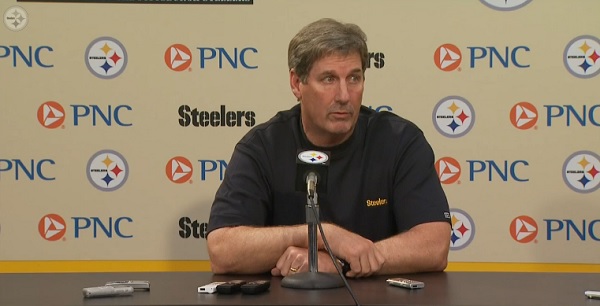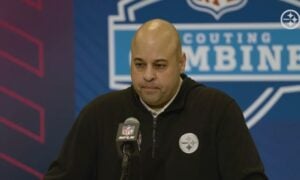Over the course of the past couple of years, the Pittsburgh Steelers have undergone an uncommon amount of change, which could have been largely correlated with the fact that the team had finished 8-8 in consecutive seasons while failing to advance to the postseason.
In deference to general manager Kevin Colbert, the attitude used to approach the offseason in those years was that this was an 8-8 team and these were 8-8 players. It’s little surprise that a lot of things changed during those years.
But the Steelers are now coming off a season in which they finished with a record of 11-5, going 8-2 down the stretch and winning their last four games to claim their first AFC North title since the 2010 season. correspondingly, we’ve seen a great deal less change.
But there was one major change, which in terms of hindsight and logistics did not come as much of a surprise. Relatively early on in the offseason process, the Steelers and decorated defensive coordinator Dick LeBeau mutually agreed to part ways.
LeBeau later accepted an assistant head coaching position in charge of the defense with the Titans, and Pittsburgh moved on as long planned, only a few days later announcing the promotion of linebackers coach Keith Butler to the position of defensive coordinator.
It had been stated for several years that Butler was to be the successor to LeBeau, and for that reason Butler has turned down offers from other teams over the past five years to accept coordinator positions there.
But the veteran position coach knew that his best chance to succeed long-term would be in Pittsburgh, and he would be able to do so in an environment, and in a system, with which he was already comfortable, and with players that were already comfortable with him.
Still, the front office did keep him happy, paying him wages above what a typical position coach might get knowing that he would eventually be the successor to the defensive throne, in addition to private assurances that that day would come as LeBeau continued to operate on one-year ‘see how things go’ deals.
In 2015, however, Butler’s most recent contract was up. Meanwhile, the Steelers were coming off arguably their worst defensive performance in this millennium, posting a 25-year low in sacks, averaging 4.3 yards per carry, and giving up a litany of explosive plays against a battered secondary.
While Butler is widely anticipated to retain the foundation and structure of LeBeau’s defense, there have also been hints of a more aggressive approach, with players suggesting that they would be blitzing more and employing more one-gap techniques for the defensive line.
These and other slight departures from LeBeau’s philosophy, in addition to the faith that the rest of the front office and coaching staff have in Butler, led to this year being the year to transition from one regime to the next.
Another notable factor in the decision was the departure of yet another group of players that had defined LeBeau’s defensive success during the team’s Super Bowl years. It was the end of an era, and LeBeau was a part of that. Butler represents a fresh start, with fresh faces. As a rookie coordinator, even he acknowledges that there will be growing pains, but everybody seems hungry to see the change in action.








